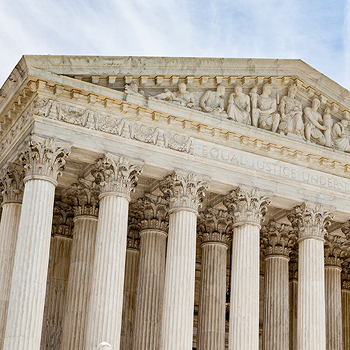Committed to Protecting the
Rights of Injured Workers







A Chicago work injury lawyer is a key ally in securing workers’ compensation benefits. At IL Work Injury Lawyer, we provide skilled legal representation for workplace injuries, ensuring that workers receive maximum compensation. Contact us today for a free consultation about your legal rights.
We are a top-rated personal injury law firm working tirelessly to realize workers’ compensation benefits for our clients. As part of the Million Dollar Advocates Forum and the Illinois Trial Lawyers Association, we have been recognized as the best trial lawyers Chicago has to offer.
Our work injury attorneys remain active in the legal community, regularly contributing to The National Law Review. With our law firm, you can expect fierce legal advocacy and a firm commitment to maximum compensation for all our clients.
Workers’ compensation claims can arise from a variety of accidents. We will thoroughly investigate the incident and determine what type of claim you have based on the circumstances.
We can assist you with a workers’ compensation claim or a third-party civil lawsuit. Our team is also available to help with Jones Act lawsuits for injured longshoremen on Lake Michigan or FELA claims for railroad workers.
Our team will help you secure disability benefits for work-related injuries, including:
Your employer provides workers’ compensation benefits to cover your medical expenses and a portion of your lost wages while you recover.
All of your medical bills should be covered by your workers’ compensation claim. In Illinois, companies can have a Preferred Providers Program (PPP), and you can choose two doctors from that list. However, you can opt out of this network and choose your own physician.
Workers’ compensation will provide up to two-thirds of the statewide average weekly wage (SAWW). In 2025, the maximum weekly compensation is $1,936.86. There are four different types of disability benefits: temporary partial disability, temporary total disability, partial permanent disability, and total permanent disability.
You can also receive vocational rehabilitation as part of your disability benefits, which helps you return to work or become trained in a different job if you are no longer able to perform the duties of your previous job.
In Illinois, the maximum compensation for a workplace-related death is the average weekly wage for 25 years or $500,000, whichever is greater. The surviving next of kin can also receive $8,000 for burial and funeral expenses (820 ILCS 305/7).
Generally, you cannot pursue a third-party and a workers’ compensation claim against an employer, as workers’ comp is considered the primary form of restitution for work-related accidents.
However, our nationally recognized work injury attorneys can pursue claims against parties other than the employer. This can include general contractors, independent contractors, worksite visitors, property owners, manufacturers, and government agencies.
Insurers will do everything they can to prevent you from receiving maximum compensation for your injuries, as these take away from their bottom line. You need a strong advocate to pursue the highest possible disability benefits for your needs.
We will thoroughly investigate your claim and guide you through the claims process, ensuring that your claim has all the necessary information and following up with the Illinois Workers’ Compensation Commission to expedite the claims process. For example, we can help you get a second opinion from a doctor to prove that your injuries are work-related.
According to the Bureau of Labor Statistics, there were 101,400 nonfatal workplace injuries and illnesses in Illinois in 2023, resulting in an incident rate of 2.4 cases per 100 full-time equivalent workers. This is in line with national averages. Of these, 91.9% were for injuries, while the rest were for illnesses.
Seventy-four percent of all injuries originated from three supersectors: trade, transportation, and utilities; education and health services; and manufacturing. Natural resources and mining had the highest incident rate, of 5.5 cases per 100 full-time equivalent workers. Financial services had the lowest incident rate at just 0.4.
Workplaces with more employees tended to have a higher incidence rate. The injury rate was 0.8 for places with fewer than 11 workers and 3.0 for establishments with 50 to 249 workers.
The Workers’ Compensation Act governs these claims (820 ILCS 305/1). This law requires companies to hold valid insurance to cover the medical bills and lost income of workers who are injured in the course of their duties. Only employees can make claims, meaning that gig workers and independent contractors are not covered.
Workers’ compensation is a no-fault system, meaning that it does not matter whether you or the employer was responsible for the accident. Rather, you only must prove that you were injured and that the injury occurred while you were performing work for the employer.
For example, you could make a claim if you were hit by a car while at a construction site, but you could not make a claim if you were hit while driving to work.
To file a claim, you must inform the employer within 45 days of the injury. If the accident was due to radiological exposure, you have 90 days.
Workers’ compensation case law continues to evolve, providing attorneys with more sophisticated arguments. One recent example is McAllister v. Illinois Workers’ Compensation Commission, which better clarified the condition that the injury must arise from employment activities.
In this case, the plaintiff injured his knee while helping his coworker pick up carrots from the floor. The court assessed whether this could be considered an employment risk, a personal risk, or a neutral risk. An employment risk would be one that is specific to the job description or that is more likely to result in injury because of the workplace environment.
The Illinois Supreme Court determined that because kneeling and rising are closely related to the plaintiff’s work as a sous chef, this injury could be considered an employment risk rather than a personal or neutral risk. In this way, the court limited the ability of employers to argue that a workplace accident is not related to employment.
Unlike a personal injury lawsuit, which has a statute of limitations of two years, a workers’ comp claim must be filed within three years of the accident or two years after the last payment from the employer, whichever is later (820 ILCS 305/6).
However, you have to report the accident to your employer within 45 days or you forfeit your right to pursue compensation.
Workers’ compensation is paid by the employer to the injured worker. This is a no-fault system, meaning that it does not matter whether you were primarily responsible for the accident. All that matters is that you can prove you were injured during the course of your duties for the employer.
However, it’s possible to hold other parties accountable through third-party lawsuits. This can include the following parties.
You must act quickly after a workplace accident to ensure that you have a chance to pursue compensation. Follow these steps as soon as possible.
Our award-winning team of nationally recognized attorneys is here to fight for you. We will guide you through the entire legal process and protect your rights by helping with the following needs.
Our work injury attorneys provide top-rated legal representation on a contingency fee basis, meaning you owe us nothing unless we successfully secure compensation for you.
In general, only employees are covered by workers’ compensation insurance. You can be a full-time, part-time, or seasonal employee. Approximately 91% of workers are covered by the Workers’ Compensation Act.
Independent contractors and gig workers are generally excluded from workers’ compensation benefits. For these cases, you may need to file a personal injury lawsuit instead.
Yes, it is possible to sue for emotional distress. This could be due to workplace harassment, such as being stalked by a coworker, or exposure to workplace violence, like a shooting, fire, or accident. First responders and other frontline workers may be able to sue for PTSD caused by their employment.
However, these cases can be more challenging as you must directly prove your distress was due to a hostile work environment. Contact our work injury attorneys to learn more about your legal rights.
Having secured over $490 million in settlements and verdicts over the past 25 years, our team is passionate about helping injured employees recover in comfort. We work on a contingency fee basis, meaning that you owe us nothing unless we successfully earn compensation for you. Schedule your free consultation today.



After I sustained an injury while working on a construction site a co-worker told me to contact this law firm. I was very happy with her suggestion. The team here handled my work comp case quickly and was also abuse to file a lawsuit against a sub-contactor that provided me with much more money than...
A great outcome for a railroad injury case that I was told by other attorneys had minimal value. This law firm hired an investigator who interviewed my co-workers and went out to the railyard to help establish the area where I fell was poorly maintained and in disrepair for a long time prior to my...
Thank you for an amazing outcome that far exceeded my expectations. In addition to the outcome, I was very pleased with how this law office handled my calls and texts- promptly responding to each. 5 stars for the outcome, 5 stars for customer service.
